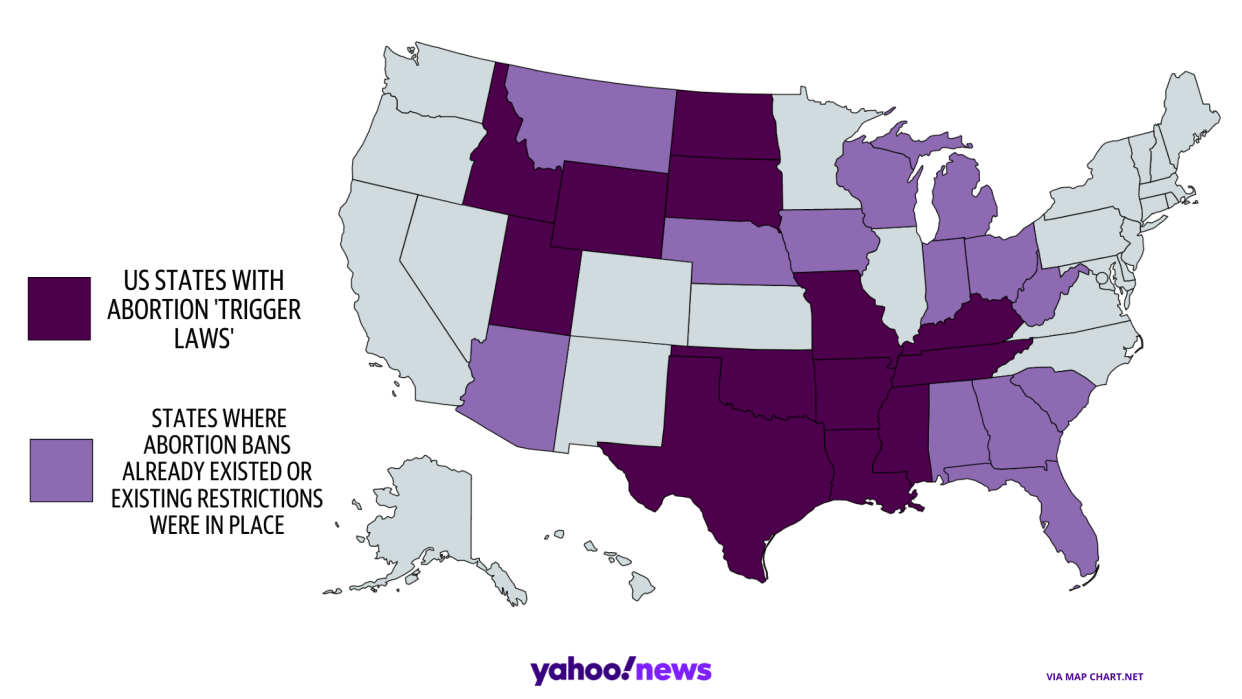Abortion Trigger Laws by State

What are Abortion Trigger Laws?
Abortion trigger laws are laws that restrict access to abortion in certain circumstances. These laws are designed to take effect if Roe v. Wade is overturned, or if a certain number of states pass similar legislation. The purpose of these laws is to make it more difficult for women to obtain abortions if the legal landscape surrounding abortion changes.
How do Abortion Trigger Laws Work?
Abortion trigger laws work by automatically banning abortions in certain circumstances. For example, in some states, abortion is automatically banned if Roe v. Wade is overturned. In other states, abortion is automatically banned if a certain number of states pass similar legislation. These laws are designed to take effect without any additional action from the state legislature.
What are the Consequences of Abortion Trigger Laws?
The consequences of abortion trigger laws are significant. These laws can make it much more difficult for women to obtain abortions if the legal landscape surrounding abortion changes. Women in states with abortion trigger laws may have to travel long distances to obtain abortions, or they may be forced to carry unwanted pregnancies to term. These laws can also lead to increased costs for healthcare providers, as they may need to provide additional services to women who are seeking abortions.
Pros and Cons of Abortion Trigger Laws
Pros
- Abortion trigger laws can help to protect the rights of the unborn.
- These laws can help to prevent states from becoming "abortion havens" if Roe v. Wade is overturned.
- Abortion trigger laws can help to ensure that states have a say in the legality of abortion.
Cons
- Abortion trigger laws can make it much more difficult for women to obtain abortions.
- These laws can lead to increased costs for healthcare providers.
- Abortion trigger laws can violate a woman's right to choose.
FAQs
Q: What are abortion trigger laws?
A: Abortion trigger laws are laws that restrict access to abortion in certain circumstances, such as if Roe v. Wade is overturned or if a certain number of states pass similar legislation.
Q: How do abortion trigger laws work?
A: Abortion trigger laws work by automatically banning abortions in certain circumstances, without any additional action from the state legislature.
Q: What are the consequences of abortion trigger laws?
A: The consequences of abortion trigger laws can be significant, making it more difficult for women to obtain abortions and potentially leading to increased costs for healthcare providers.
Q: What are the pros and cons of abortion trigger laws?
A: The pros of abortion trigger laws include protecting the rights of the unborn and ensuring that states have a say in the legality of abortion. The cons include making it more difficult for women to obtain abortions and potentially violating a woman's right to choose.
